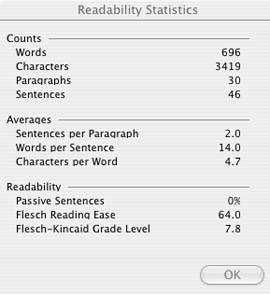Friday Speakout: To Be or Not To Be, Guest Post by Michelle Dwyer
To Be or Not To Be
by Michelle Dwyer
Like most college students, I had to take upper-level, intensive writing classes to graduate. And I dare say that most upper-level, intensive writing professors hate the dreaded “be” verbs. Those short words that provide the oxygen needed to breathe—the words that seem impossible to erase from our prose (am, I, are, was, were, be, being, been). So like many who have come before me, and who will come later, I worked hard to avoid such unwelcomed words in order to walk across the stage with a decent grade point average.
Abstaining from these words proved difficult enough. I didn’t need a professor who would take the term pet-peeve to a new level.
But that’s exactly what I got.
He docked an entire letter grade for every “be” verb he found in a student’s work. That’s right! Five “be” verbs on an assignment equaled a failing grade. He felt too many “be” verbs made papers too passive. (My guess is that some editors feel this way as well.) Needless to say I put in many hours of time and effort, many more of search and replace, and even more of total revisions.
I aced the class. I deserved to. And for the classes that followed, my papers carried a sharp, crisp, tight flow. My education definitely made me a better writer.
However something happened to me when I graduated. I got lazy and started writing extremely passive when delving into my fiction work. Fiction evokes passions, makes writing fun. Why cloud it with such a thing as attention to detail, right? I mean, c’mon. I have to work at creating stories? Are you serious?
Yes.
I didn’t figure this out until my contest entries and articles failed to make the cut with everyone. For a while, instead of humbling myself enough to find out what I was lacking, I simply chalked it up to “the industry” and continued. I knew my writings had the merit to win contests and/or get published. But they weren’t great. It wasn’t until I took advantage of WOW!’s critique service did my articles and stories pop.
I began applying the advice (write with a more active voice) from the critiques to all of my work; hence, I have reverted back to catching those “bees”. I’ve since sold one nonfiction article, won my first writing contest, and placed as a runner-up in the most recent flash fiction contest with WOW!.
*And if anybody remembers from my last post, nonfiction doesn’t like me very much. So selling nonfiction is validation for sure.*
Now for the moral: I’m sure somebody can read this article and find some “be” verbs. I haven’t discovered perfection. I may never. Sometimes I’m too wordy, other times too fluffy. Sometimes I just need use “be” verbs. We all do, even accomplished authors. But every day I learn to respect the craft of writing a little more.
Embracing criticism doesn’t make a writer weak. It makes a writer write.

Michelle studied writing in high school and longed to become an author. But circumstances arose, causing her to join the military instead. However, she never gave up. She enrolled in writing school, finished her first crime novel, and will achieve her MBA this fall. She writes as Krymzen Hall at https://www.helium.com/users/421563/show_articles
~~~~~~~~~~~~~~~~~~~~~~~~~~~~~~~~~~~~~~~~~~~~
Do you want to reach WOW’s audience? We welcome short posts (500 words or less) from writers just like you! You can include your bio, pic, and links to your website/blog for promotion. Our only requirement is that your post be about women and writing. Send your Friday “Speak Out!” post to: marcia[at]wow-womenonwriting[dot]com for consideration.
~~~~~~~~~~~~~~~~~~~~~~~~~~~~~~~~~~~~~~~~~~~~
by Michelle Dwyer
Like most college students, I had to take upper-level, intensive writing classes to graduate. And I dare say that most upper-level, intensive writing professors hate the dreaded “be” verbs. Those short words that provide the oxygen needed to breathe—the words that seem impossible to erase from our prose (am, I, are, was, were, be, being, been). So like many who have come before me, and who will come later, I worked hard to avoid such unwelcomed words in order to walk across the stage with a decent grade point average.
Abstaining from these words proved difficult enough. I didn’t need a professor who would take the term pet-peeve to a new level.
But that’s exactly what I got.
He docked an entire letter grade for every “be” verb he found in a student’s work. That’s right! Five “be” verbs on an assignment equaled a failing grade. He felt too many “be” verbs made papers too passive. (My guess is that some editors feel this way as well.) Needless to say I put in many hours of time and effort, many more of search and replace, and even more of total revisions.
I aced the class. I deserved to. And for the classes that followed, my papers carried a sharp, crisp, tight flow. My education definitely made me a better writer.
However something happened to me when I graduated. I got lazy and started writing extremely passive when delving into my fiction work. Fiction evokes passions, makes writing fun. Why cloud it with such a thing as attention to detail, right? I mean, c’mon. I have to work at creating stories? Are you serious?
Yes.
I didn’t figure this out until my contest entries and articles failed to make the cut with everyone. For a while, instead of humbling myself enough to find out what I was lacking, I simply chalked it up to “the industry” and continued. I knew my writings had the merit to win contests and/or get published. But they weren’t great. It wasn’t until I took advantage of WOW!’s critique service did my articles and stories pop.
I began applying the advice (write with a more active voice) from the critiques to all of my work; hence, I have reverted back to catching those “bees”. I’ve since sold one nonfiction article, won my first writing contest, and placed as a runner-up in the most recent flash fiction contest with WOW!.
*And if anybody remembers from my last post, nonfiction doesn’t like me very much. So selling nonfiction is validation for sure.*
Now for the moral: I’m sure somebody can read this article and find some “be” verbs. I haven’t discovered perfection. I may never. Sometimes I’m too wordy, other times too fluffy. Sometimes I just need use “be” verbs. We all do, even accomplished authors. But every day I learn to respect the craft of writing a little more.
Embracing criticism doesn’t make a writer weak. It makes a writer write.

Michelle studied writing in high school and longed to become an author. But circumstances arose, causing her to join the military instead. However, she never gave up. She enrolled in writing school, finished her first crime novel, and will achieve her MBA this fall. She writes as Krymzen Hall at https://www.helium.com/users/421563/show_articles
~~~~~~~~~~~~~~~~~~~~~~~~~~~~~~~~~~~~~~~~~~~~
Do you want to reach WOW’s audience? We welcome short posts (500 words or less) from writers just like you! You can include your bio, pic, and links to your website/blog for promotion. Our only requirement is that your post be about women and writing. Send your Friday “Speak Out!” post to: marcia[at]wow-womenonwriting[dot]com for consideration.
~~~~~~~~~~~~~~~~~~~~~~~~~~~~~~~~~~~~~~~~~~~~
Labels: constructive criticism, finding Passive Sentences, Friday Speak Out, Michelle Dwyer













